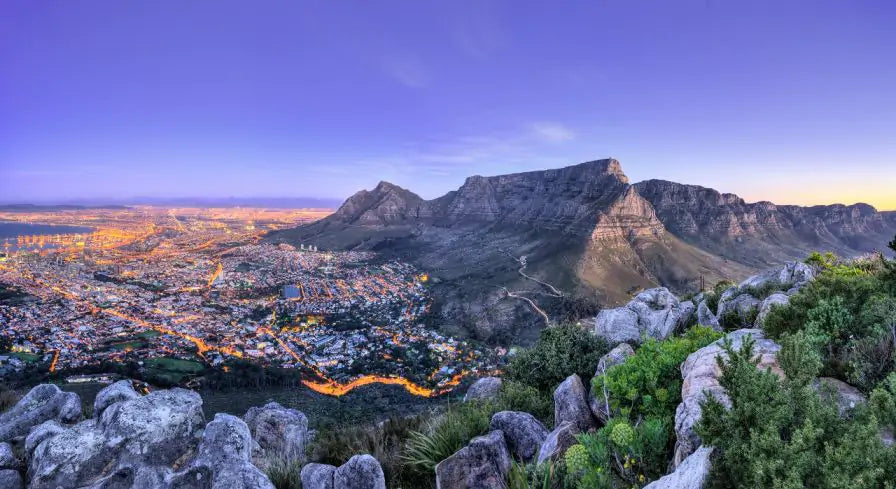Why not add these to compliment your wheelie bins?
Your basket is currently empty.
Shop NowWe guarantee to have the lowest price! Find the same bin for a cheaper price and we will beat it!

The World’s Greenest Cities: Cape Town, South Africa
Cape Town has been hailed the greenest city in Africa, and for good reason. The ‘Mother City’ as it is affectionately known by its residents, has invested in cleaner public transport, a network of cycle lanes, and renewable energy to power its sprawling metropolis.
While it’s true that Cape Town generates a lot of waste per head, it’s focusing on becoming cleaner and greener by tackling its waste and recycling issues, increasing investment in renewable energy, conserving its green spaces, and investing heavily in cycle lanes and cleaner transport.
Cape Town: The sustainable metropolis
Even though you might think that much of Africa is either desert or bush land, figures suggest that by 2035, more than half of Africans will live in urban environments. This means that more infrastructure will be needed, more power will be used, and more waste will be produced.
The authorities in Cape Town have realised this, and they are busy planning on making the city more sustainable now, and in the future.
Plans are being made for sustainable housing, a better transport system, and safe and more eco-friendly ways to get around the city. Here are just some of the sustainability plans that have already came to fruition in Cape Town.
Green spaces
Cape Town has its fair share of beauty spots, not to mention the majestic Table Mountain National Park. South Africans love being outside, so there’s been plenty of investment in beautifying and maintaining the city’s precious green spaces.
Farmer’s markets and sustainable food
Healthy green spaces means that there are plenty of places to grow food, and there has been a steady rise in the amount of farmer’s markets selling locally grown food which is healthier and often easier on the pocket.
Cleaner public transport
There has been a lot of investment in public transport to make it greener and more appealing to residents. Authorities have also introduced a network of cycle lanes to make it easier and more eco-friendly to get around the city.
Renewable energy
As well as encouraging residents to reduce their energy use, authorities have invested in wind energy, and the city boasts the first commercial wind farm in South Africa, which has been in operation since 2008. The city hopes to get 10% of its energy from renewable sources by the end of this year.

Responsible tourism
Back in 2009, the mayor of Cape Town signed a Responsible Tourism Charter, in which the city pledged to follow responsible tourism practices. Authorities then went on to introduce a responsible tourism policy to make the city not only greener and more pleasant for tourists to visit, but to protect Cape Town itself from the effects of tourism for years to come.
The responsible tourism policy
The key aims of the responsible tourism policy are to promote and encourage tourism that:
What is the policy doing for the environment?
Of course, minimising the negative impact on the environment is a huge part of responsible tourism too. The responsible tourism policy aims to:
The Responsible Tourism policy has already paid dividends. Cape Town has been awarded the ‘Africa’s Leading Destination’ accolade two years in a row.
Due to the incoming simpler recycling legislation we are experiencing a huge increase in demand. All orders are being processed as fast as possible, but there is a delay of around 2-3 weeks at present. We will respond to all emails as soon as we can but please bear with us as we work through the backlog.